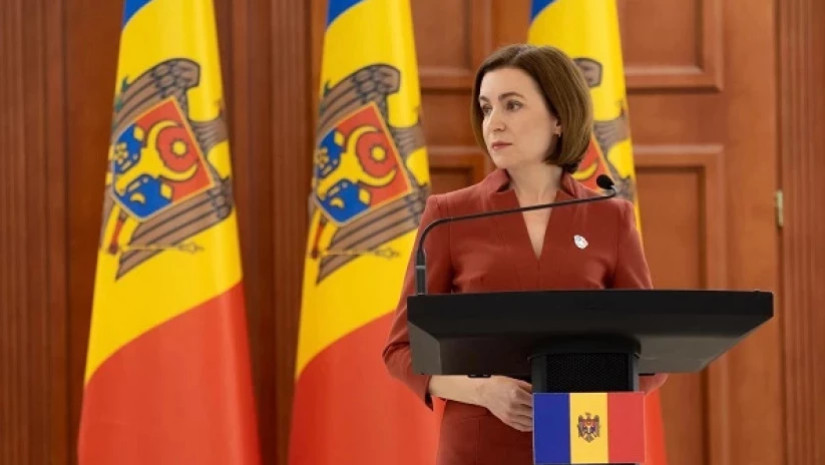The incumbent president's clear victory, against a backdrop of growing Russian interference in its neighboring countries, reassured the European Union and Ukraine.
Moldova's pro-European incumbent president, Maia Sandu, was largely re-elected on Sunday, November 3, for a second four-year term, thanks to the decisive mobilization of a rather young, urban and well-educated electorate, as well as a significant diaspora population settled in the European Union (EU). The near-definitive count for the run-off election stood at 55% of the vote for the incumbent president on Monday morning. She was competing against the candidate nominated by the Party of Socialists, Alexandr Stoianoglo, considered close to Moscow, who received 45% of the vote.
At least 300,000 Moldovans living abroad voted at polling stations opened in embassies and consulates, "a historic record" according to Moldova's Central Electoral Commission, which reported a total of 3.3 million registered voters. Without these votes from the country's diaspora, Stoianoglo would have narrowly won with 51% of the vote.
Two weeks earlier, Sandu had come out of the first round of the presidential election in the lead, with 42.49% and 656,852 votes. This had been a disappointing result, as she hoped to be re-elected without a second round. The second time, the pro-Western camp broadly mobilized their voters, reaching 910,000 votes, a total considerably higher than the 750,000 votes that were cast in favor of the country's EU membership, in a referendum held on October 20, at the same time as the first round of the presidential election. In 2020, Sandu obtained 943,006 votes (57.72%) in the second round of voting, running against Socialist candidate Igor Dodon.


















